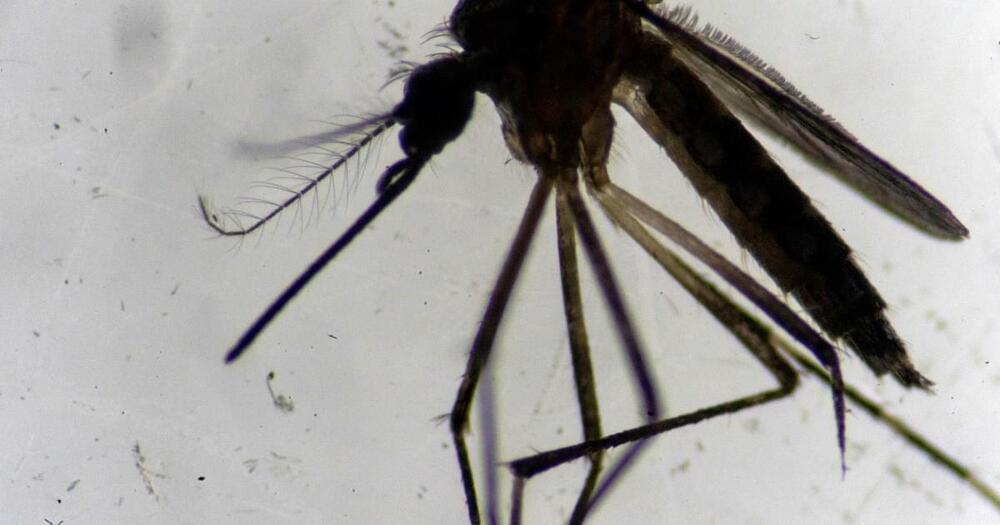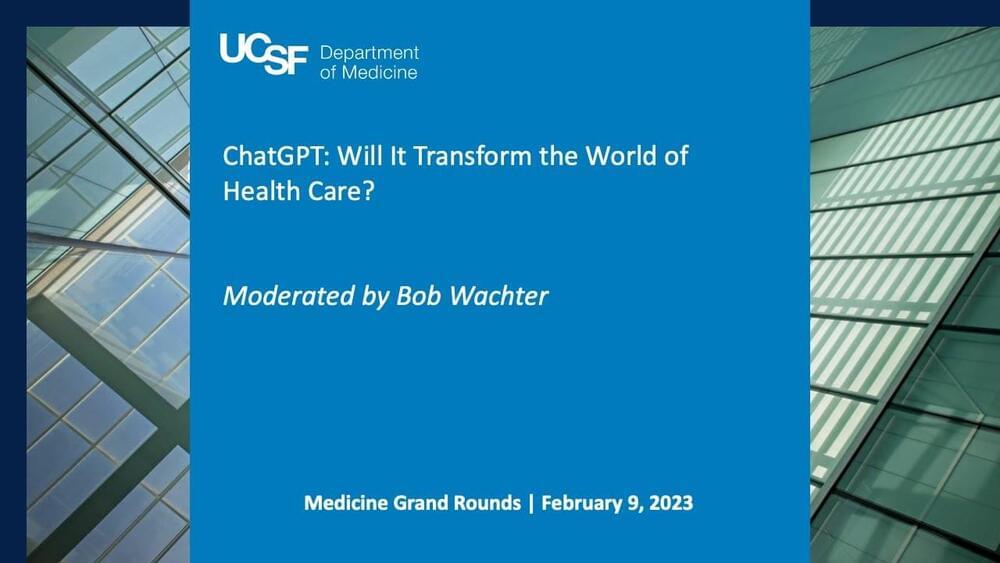Sep 26, 2023
Mosquitoes’ taste for blood is finally explained
Posted by Shubham Ghosh Roy in category: biotech/medical
Mosquitoes can taste your blood using unique sensory abilities. Can we use that to keep them off us?

Mosquitoes can taste your blood using unique sensory abilities. Can we use that to keep them off us?
A new artificial intelligence program is helping scientists speedily sift through thousands of data sets and millions of papers to home in on genes that underly disease, drastically condensing a search process that once took months.
Using computer software, scientists can scan entire genomes, or an organism’s full set of DNA, of mice that model human diseases. The goal: to identify genetic mutations that cause those diseases and open new doors for scientists to better harness genetics to develop disease treatments, said Gary Peltz, MD, PhD, professor of anesthesiology, perioperative and pain medicine at Stanford Medicine.
But to do that, scientists must search through massive sets of genomic data, which yields more false positives than researchers care to admit. It’s also time intensive. Peltz wanted to make the genetic discovery process easier, faster and more accurate.
The genetic code of a rare form of kidney cancer, called reninoma, has been studied for the first time. In a paper, published in Nature Communications, researchers at the Wellcome Sanger Institute, Great Ormond Street Hospital and The Royal Free Hospital also revealed a new drug target that could serve as an alternative treatment if surgery is not recommended.
There are around 100 cases of reninoma reported to date worldwide, and it is among the rarest of tumors in humans. Although it can usually be cured with surgery, it can cause severe hypertension or it can spread and develop into metastases. There are no existing medical treatments for reninoma and management involves surgery alone. Until now, it had been unknown what genetic error causes reninoma.
In the new study, a collaboration between the Wellcome Sanger Institute and Great Ormond Street Hospital and The Royal Free Hospital, researchers found that there is a specific error in the genetic code of a known cancer gene, NOTCH1, that is behind the development of this rare cancer.
Surgeons at Boston Children’s Hospital have invented a new kind of surgical robot that is extremely adept at handling brain operations.
Kool99/iStock.
“We needed to use basically hollow arms,” DuPont explained to the magazine.
Continue reading “This surgical robot can remove brain tumors from children” »
Researchers at the Francis Crick Institute, the University of Cambridge, Imperial College London, the University of Liverpool, the University of Cape Town and UKHSA have uncovered a link between an antiviral drug for COVID-19 infections called molnupiravir and a pattern of mutations in the SARS-CoV-2 virus.
Molnupiravir works by inducing mutations in the virus’s genetic information, or genome, during replication. Many of these mutations will damage or kill the virus, reducing viral load in the body. It was one of the first antivirals available on the market during the COVID-19 pandemic and was widely adopted by many countries.
In research published in Nature, the scientists used global sequencing databases to map mutations in the SARS-CoV-2 virus over time. They analyzed a family tree of 15 million SARS-CoV-2 sequences so that at each point in each virus’s evolutionary history they could see which mutations had occurred.

When the spinal cords of mice and humans are partially damaged, the initial paralysis is followed by the extensive, spontaneous recovery of motor function. However, after a complete spinal cord injury, this natural repair of the spinal cord doesn’t occur and there is no recovery. Meaningful recovery after severe injuries requires strategies that promote the regeneration of nerve fibers, but the requisite conditions for these strategies to successfully restore motor function have remained elusive.
“Five years ago, we demonstrated that nerve fibers can be regenerated across anatomically complete spinal cord injuries,” says Mark Anderson, a senior author of the study. “But we also realized this wasn’t enough to restore motor function, as the new fibers failed to connect to the right places on the other side of the lesion.” Anderson is the director of Central Nervous System Regeneration at. NeuroRestore and a scientist at the Wyss Center for Bio and Neuroengineering.
Continue reading “Regeneration across complete spinal cord injuries reverses paralysis” »
A. There are so many mundane but essential administrative and clerical tasks that clog up a clinician’s workday. A computer screen is actively competing for our attention. It’s the part of the industry we – as physicians – were never trained for. But, years of “we’ve always done it that way” created this anchor on us all, leading to burnout and driving thousands out of the industry during the pandemic.
Processes vastly simplified and improved by generative AI can be a powerful recruitment tool to bring a new generation into the healthcare industry and patient care without arcane and difficult processes in their way. By eliminating needless note-taking and long nights of billing and coding for reimbursement purposes, doctors can get back to solving the real issues of patient care.

The recent introduction of the breathtaking AI tool ChatGPT has sparked a national dialogue about the future of artificial intelligence in health care, education, research, and beyond. In this session, four UCSF experts discuss AI’s current and potential uses, in areas ranging from research to education to clinical care. After a brief presentation by each speaker, DOM Chair Bob Wachter moderates a far-ranging panel discussion on the health care applications of ChatGPT.
Speakers:
Atul Butte, MD, PhD, professor of Pediatrics, Bioengineering and Therapeutic Sciences, and Epidemiology and Biostatistics; director, UCSF Bakar Computational Health Sciences Institute; chief data scientist, University of California Health System.
Continue reading “ChatGPT: Will It Transform the World of Health Care?” »
The blood cancer treatment venetoclax (Venclexta; Roche, Genentech, AbbVie) was found to kill latent HIV-infected cells, indicating a possible new treatment for the virus, according to the results of a preclinical study by the Walter and Eliza Hall Institute and The Peter Doherty Institute for Infection and Immunity.
When HIV-infected cells are latent, the virus remains in the body and is untreatable by therapies currently on the market, which is why patients with HIV must stay on treatment to suppress the virus. Currently, antiretroviral therapies (ART) are the standard of care treatment for patients with HIV, however, they cannot target latent infection.
Although antiretroviral therapies are the standard of care treatment for those with HIV, the drugs cannot target latent infections; however, venetoclax, a blood cancer treatment, shows promise.
The psychedelic drug MDMA can reduce symptoms of post-traumatic stress disorder, researchers reported in a new study published Thursday.
The company sponsoring the research said it plans later this year to seek U.S. approval to market the drug, also known as ecstasy, as a PTSD treatment when combined with talk therapy.
“It’s the first innovation in PTSD treatment in more than two decades. And it’s significant because I think it will also open up other innovation,” said Amy Emerson, CEO of MAPS Public Benefit Corporation, the research sponsor.”